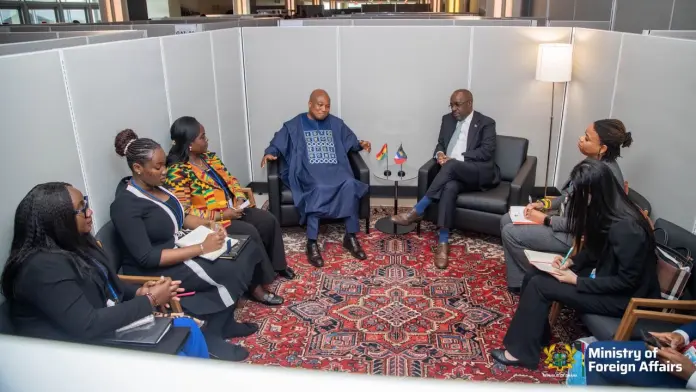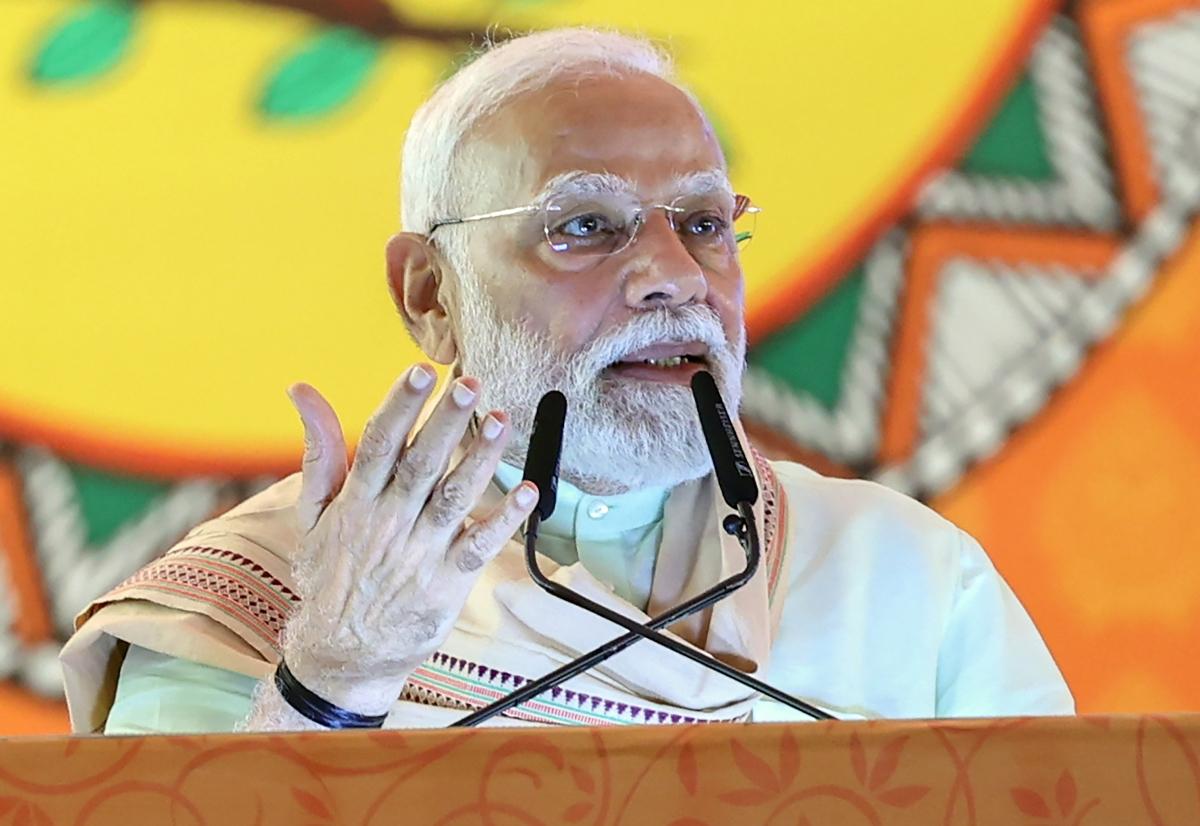By Ghana News
Copyright ghanamma

Ghana has clinched its tenth visa waiver agreement since January, this time with Antigua and Barbuda, as Foreign Minister Samuel Okudzeto Ablakwa continues an unprecedented diplomatic offensive that positions the West African nation as a global travel hub.
The agreement, signed on the sidelines of the 80th United Nations (UN) General Assembly in New York, eliminates visa requirements for holders of ordinary, service, and diplomatic passports from both countries. It allows citizens of both countries to travel without visa restrictions, thereby strengthening bilateral ties and fostering deeper cooperation, marking a strategic milestone in Africa-Caribbean relations.
Ablakwa’s meeting with Antiguan Foreign Minister E.P. Chet Greene represents more than diplomatic protocol—it signals a calculated push to position Ghana as the gateway for Africa-Caribbean economic integration. The timing coincides with growing international recognition of Ghana’s stability and investment potential in West Africa.
The Caribbean connection offers particular strategic value for Ghana’s economy. Antigua and Barbuda, while small with just over 100,000 citizens, serves as a critical financial services hub in the Caribbean with established links to North American and European markets. This creates potential pathways for Ghanaian businesses seeking international expansion beyond traditional African markets.
Greene characterized the relationship as “family ties rooted in history and culture,” acknowledging the shared heritage that connects many Caribbean nations to West Africa through the historical experiences of the African diaspora. The minister emphasized that direct travel links could unlock economic opportunities currently hampered by complex visa requirements and transit restrictions.
The agreement was announced Wednesday evening through Ablakwa’s social media channels, highlighting the modern diplomatic approach of the Mahama Administration, which took office in January 2025. The announcement underscores how Ghana has accelerated its diplomatic engagement since the new government assumed power.
The broader context reveals Ghana’s systematic approach to global mobility. Previous agreements secured in 2025 include deals with Morocco, Serbia, Colombia, and several other nations across multiple continents. This represents a departure from traditional diplomatic practices, where visa agreements often took years to negotiate and implement.
For Ghana’s private sector, the Antigua connection opens potential opportunities in tourism, financial services, and trade facilitation. Caribbean nations have developed sophisticated offshore financial systems that could benefit Ghanaian companies seeking international banking and investment structures.
The agreement also addresses broader African development goals. Enhanced mobility between Africa and the Caribbean could facilitate knowledge transfer, particularly in areas where Caribbean nations have developed expertise, including disaster management, small island development strategies, and sustainable tourism models.
Ablakwa’s diplomatic achievements contrast sharply with previous administrations’ approaches to international relations. The Foreign Minister, who previously served as Deputy Minister for Education and has been a prominent parliamentarian representing North Tongu constituency, has brought a results-oriented approach to Ghana’s foreign policy.
The reparations discussion that emerged during the bilateral meeting adds another dimension to the agreement. Greene’s support for Ghana’s push to elevate reparations to the same international priority level as genocide and xenophobia reflects growing global momentum around historical justice issues.
Trade implications extend beyond immediate bilateral benefits. Antigua and Barbuda’s membership in the Caribbean Community (CARICOM) and the Organisation of Eastern Caribbean States (OECS) potentially provides Ghana with indirect access to broader Caribbean markets through preferential arrangements.
Tourism sectors in both countries stand to benefit significantly. Ghana’s growing reputation as a preferred destination for African diaspora tourism, particularly around the “Year of Return” initiatives, could expand through Caribbean connections. Similarly, Ghanaian travelers gain access to world-class Caribbean hospitality and financial services sectors.
The agreement reflects broader trends in South-South cooperation, where developing nations increasingly bypass traditional North-South diplomatic and economic relationships in favor of direct partnerships. This approach has gained momentum as African and Caribbean nations seek to reduce dependency on former colonial powers.
Implementation timelines remain unclear, though similar agreements negotiated by Ghana in 2025 have typically become effective within three to six months of signing. The expedited process reflects both countries’ commitment to transforming diplomatic agreements into practical benefits for their citizens.
Ghana’s visa waiver strategy represents more than travel convenience—it positions the country as a regional hub for international business, cultural exchange, and investment flows. Each agreement creates network effects that enhance Ghana’s attractiveness as a destination for multinational corporations and international organizations seeking African regional headquarters.
The success of Ablakwa’s diplomatic campaign demonstrates how focused, strategic foreign policy can yield measurable results in relatively short timeframes. The ten visa waiver agreements secured since January exceed the total achieved by many countries over multiple years, reflecting both Ghana’s enhanced international standing and the new administration’s prioritization of economic diplomacy.



